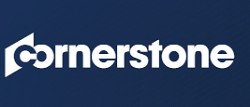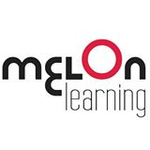Description

Cornerstone Learning

Learning Suite 360
Comprehensive Overview: Cornerstone Learning vs Learning Suite 360
Cornerstone Learning, a part of Cornerstone OnDemand, is a comprehensive learning management system (LMS) designed to deliver diverse learning experiences for employees across organizations. The Learning Suite 360 is an extension of Cornerstone's solutions, aiming to provide a holistic approach to employee development and training. Below is an overview of the primary functions, target markets, market presence, and differentiating factors of these products:
a) Primary Functions and Target Markets
Primary Functions:
-
Learning Management System (LMS): Facilitates online training, compliance, and certifications. Enables scheduling, tracking, and reporting educational courses and programs.
-
Content Management & Delivery: Offers access to a library of curated learning content, which can be tailored to fit organizational needs.
-
Personalized Learning Paths: Provides customizable learning journeys to suit individual employee career development goals and organizational objectives.
-
Analytics and Reporting: Includes robust data analytics tools for tracking learning progress, effectiveness, and ROI calculations.
-
Social Learning and Collaboration: Encourages peer-to-peer interaction and collaborative learning experiences through integrated social features.
-
Mobile Learning: Mobile-friendly interface for learning on-the-go, accommodating remote and diverse workforces.
Target Markets:
-
Large Enterprises: With robust needs for compliance, talent management, and large-scale learning initiatives.
-
Mid-Market Companies: Organizations seeking scalability in learning solutions without compromising on comprehensive features.
-
Specific Industries: Industries such as healthcare, financial services, retail, and manufacturing that require rigorous employee training and compliance.
b) Market Share and User Base
Cornerstone OnDemand, including its learning solutions, is a prominent player in the global LMS market, particularly noted among enterprise-level and mid-market clients. While exact figures depend on reporting and assessment, Cornerstone is a market leader, consistently ranked among the top vendors by various industry analysts like Gartner, Forrester, and others.
-
Market Share: Cornerstone commands a significant market share due to its comprehensive feature set and ability to cater to both enterprise-level and mid-market clients globally.
-
User Base: Hundreds of millions of users globally, encompassing a wide range of sectors from technology to retail, healthcare, and beyond. Its customer base includes large multinational corporations, governmental agencies, and non-profit organizations.
c) Key Differentiating Factors
-
Comprehensive Ecosystem: The Learning Suite 360 offers an integrated approach that goes beyond traditional LMS features by incorporating a holistic suite that includes talent management, HR, and development tools.
-
Content Accessibility: Provides access to one of the largest content libraries, allowing companies to choose from a vast pool of resources tailored for various industries.
-
User Experience & Engagement: Prioritizes a seamless user experience with an intuitive interface, personalized learning paths, and engaging social learning features that enhance learning retention and employee satisfaction.
-
Scalability & Flexibility: Highly scalable platform suited for diverse organizational sizes and structures, ensuring ease of expansion as business needs grow.
-
Analytics & AI Integration: Advanced analytics capabilities, supplemented with AI-driven insights for predictive analysis and personalized learning recommendations.
-
Global Reach & Compliance: Supports multi-language requirements with adherence to global compliance standards, making it suitable for multinational businesses.
-
Customer Support: Noted for its strong customer support and service offerings, ensuring implementations are successful and client needs are continuously met.
In conclusion, Cornerstone Learning and Learning Suite 360 cater to a wide array of organizational learning and development needs with their comprehensive, feature-rich offerings and strong market presence. They differentiate themselves with their vast content library, user-friendly design, and integration capabilities, making them a favored choice for companies seeking a strategic partner for workforce development and training initiatives.
Contact Info

Year founded :
Not Available
Not Available
Not Available
United States
http://www.linkedin.com/company/cornerstonelearning

Year founded :
Not Available
Not Available
Not Available
Not Available
Not Available
Feature Similarity Breakdown: Cornerstone Learning, Learning Suite 360
As of my last update, Cornerstone Learning and Learning Suite 360 are both robust learning management systems (LMS) that cater to organizations looking to improve and facilitate learning and development within their workforce. Here is a breakdown of feature similarities and differences:
a) Core Features Common to Both Cornerstone Learning and Learning Suite 360:
-
Training Management: Both systems offer tools for organizing, delivering, and tracking training programs. This includes support for various types of learning, such as instructor-led training, e-learning, and blended learning.
-
Content Management: Users can manage and store different types of learning content, including documents, videos, and SCORM-compliant courses.
-
Assessment and Testing: Both platforms provide functionalities for creating assessments, quizzes, and tests to evaluate learner progress and comprehension.
-
Reporting and Analytics: Comprehensive reporting and analytics tools are available in both systems, allowing organizations to track learning effectiveness and learner progress.
-
Mobile Learning: Both platforms support mobile access, enabling learners to access content on-the-go via smartphones and tablets.
-
Social and Collaborative Learning: Features supporting social learning, such as discussion forums, user comments, and collaboration tools, are common in both systems.
-
Integration Capabilities: Both Cornerstone Learning and Learning Suite 360 are designed to integrate with other enterprise systems, such as HR and talent management systems.
-
User Management: Features for managing user roles, permissions, and learning paths are standard in both platforms.
b) Comparison of User Interfaces:
-
Cornerstone Learning:
- Known for a clean, user-friendly interface with customizable dashboards.
- Offers intuitive navigation that makes it easy for users to find and access content.
- Supports personalization of the learning experience based on user profiles and learning preferences.
-
Learning Suite 360:
- Typically offers an interface with a modern design that integrates seamlessly into existing workflows.
- May feature drag-and-drop simplicity for creating courses and managing learning materials.
- Focuses on easy access to tools and resources, with a design that emphasizes user engagement and interaction.
c) Unique Features:
-
Cornerstone Learning:
- AI-Powered Learning: Utilizes artificial intelligence to recommend personalized learning paths and content discovery based on user behavior and history.
- Marketplace Integrations: Offers access to a broad market of third-party content providers, allowing for a diverse selection of learning materials.
-
Learning Suite 360:
- 360-Degree Feedback System: This feature may allow for comprehensive feedback from peers, subordinates, and supervisors as part of learning evaluations, enhancing personal and professional development.
- VR/AR Capability: Some implementations could include support for virtual reality (VR) or augmented reality (AR) learning experiences, providing immersive learning opportunities.
Note that Learning Suite 360 might have variations depending on the vendor's specific branding or additions, and features can evolve or vary over time. Always refer to the latest product documentation or contact the vendors directly for the most current feature sets and user interface details.
Features

Not Available

Not Available
Best Fit Use Cases: Cornerstone Learning, Learning Suite 360
Cornerstone Learning and Learning Suite 360 are comprehensive learning management systems designed to cater to various business needs and scenarios. Each provides unique features and capabilities that can be particularly beneficial in certain contexts. Here's an overview of the best fit use cases for these solutions:
a) Cornerstone Learning
Types of Businesses or Projects:
- Large Enterprises: Cornerstone Learning is ideal for large organizations with complex training requirements. It can support thousands of users and offers robust reporting and analytics to track progress across diverse departments.
- Highly Regulated Industries: Industries such as healthcare, finance, or manufacturing, where compliance and certification tracking are critical, benefit from Cornerstone's strong compliance management capabilities.
- Global Organizations: With its multilingual capabilities and support for diverse content types, Cornerstone Learning caters to companies with a global footprint that need consistent training across multiple regions.
Benefits for Specific Projects:
- Employee Onboarding: Streamlining the onboarding process with automated training modules.
- Continuous Professional Development: Supporting ongoing employee development with personalized learning paths and content recommendations.
- Compliance and Certification: Keeping track of necessary certifications and compliance training efficiently.
b) Learning Suite 360
Preferred Scenarios:
- Comprehensive Learning Management: When an organization requires an all-in-one solution that integrates learning management with performance and succession planning, Learning Suite 360 is the go-to choice.
- Organizations Looking for Scalability: Learning Suite 360 suits organizations anticipating growth, providing a scalable platform that adjusts to evolving training needs.
- User-Centric Approach: Companies prioritizing a user-friendly interface and experience, making learning engaging and interactive for employees.
Benefits for Specific Projects:
- Talent Development Programs: Seamlessly link learning to talent management and development strategies.
- Strategy-Driven Learning: Aligning learning initiatives closely with business goals, performance metrics, and strategic priorities.
d) Catering to Different Industry Verticals or Company Sizes
-
Industry Verticals:
- Technology and Software: For industries characterized by rapid product development cycles, both platforms support continual learning and skill updates.
- Retail and Consumer Goods: Training a dispersed workforce across various locations, focusing on customer service and product knowledge, can be effectively managed with these platforms.
- Public Sector and Nonprofits: The ability to track and report on compliance and funding requirements supports these sectors' unique needs.
-
Company Sizes:
- Small to Medium-Sized Enterprises (SMEs): While both platforms can be utilized by SMEs, they must consider the balance between functionality and cost. Cornerstone Learning offers modular services that might appeal to SMEs needing specific features.
- Large Enterprises: Both platforms, especially Cornerstone Learning, are well-suited for large multinational corporations needing comprehensive, scalable solutions.
In summary, Cornerstone Learning excels in scenarios requiring robust compliance management and scalability, particularly in large, global enterprises. Learning Suite 360 is ideal for organizations seeking an integrated approach that combines learning management with broader talent management strategies, making it a versatile choice for companies looking to align training with business goals. Both solutions are adaptable across various industries, offering functionalities that meet the specific needs of different sectors and company sizes.
Pricing

Pricing Not Available

Pricing Not Available
Metrics History
Metrics History
Comparing undefined across companies
Conclusion & Final Verdict: Cornerstone Learning vs Learning Suite 360
To provide a comprehensive conclusion and final verdict on the comparison between Cornerstone Learning and Learning Suite 360, we need to consider aspects such as features, usability, cost-effectiveness, scalability, and customer support.
a) Best Overall Value
-
Cornerstone Learning often emerges as a strong contender for organizations seeking a robust and customizable LMS with a wide range of features. It caters to large enterprises with complex learning and development needs, offering tools for compliance training, performance support, and talent management integration.
-
Learning Suite 360, on the other hand, is usually favored by organizations that prioritize intuitive user experiences and seamless multimedia content delivery. It might appeal more to small to mid-sized businesses or educational institutions looking for a straightforward LMS that requires minimal customization.
Conclusion: Determining the best overall value depends significantly on the size and specific needs of the organization. For large enterprises with comprehensive HR needs, Cornerstone Learning is generally the better choice. However, for smaller organizations looking for simplicity and intuitive functionality, Learning Suite 360 could provide better value.
b) Pros and Cons
Cornerstone Learning:
-
Pros:
- Extensive feature set, including talent management integration.
- Highly customizable to meet complex requirements.
- Strong analytics and reporting tools.
- Scalable to accommodate large numbers of users and extensive content libraries.
-
Cons:
- Can be complex to implement and navigate for smaller organizations.
- Higher cost, which may not be justifiable for organizations with simpler needs.
- Requires significant initial setup time and potential training for administrators.
Learning Suite 360:
-
Pros:
- User-friendly interface, making it easy for learners and administrators.
- Typically lower cost of entry, making it accessible to small to mid-sized organizations.
- Quick implementation with minimal ramp-up time.
- Efficient multimedia content delivery for a better learning experience.
-
Cons:
- May lack the depth of features required by large enterprises.
- Less customizable compared to Cornerstone Learning.
- Potential limitations in integrating with broader HR systems and larger-scale performance management.
c) Recommendations
For organizations deciding between Cornerstone Learning and Learning Suite 360:
-
Assess Organization Size and Complexity: Large enterprises or organizations planning significant growth should lean towards Cornerstone Learning for its scalability and comprehensive feature set. In contrast, smaller businesses or educational institutions might prefer Learning Suite 360 for its ease of use and quick deployment.
-
Evaluate Specific Needs: If talent management integration and robust analytics are priorities, Cornerstone Learning is likely the better option. For those who value straightforward, engaging learning experiences, Learning Suite 360 might be more appropriate.
-
Budget Considerations: Organizations with limited budgets should carefully evaluate the pricing models. Learning Suite 360 may offer a more economical solution without sacrificing essential capabilities for smaller setups.
-
Trial and Feedback: Whenever possible, take advantage of free trials or demo sessions to gather hands-on feedback from potential users within the organization. This process can provide practical insights into which platform aligns better with the team’s daily workflows.
In conclusion, the choice between Cornerstone Learning and Learning Suite 360 should be driven by the specific needs, resources, and strategic goals of the organization in question. Aligning the LMS with long-term learning and development objectives will ensure the best value is achieved.
Add to compare
Add similar companies



